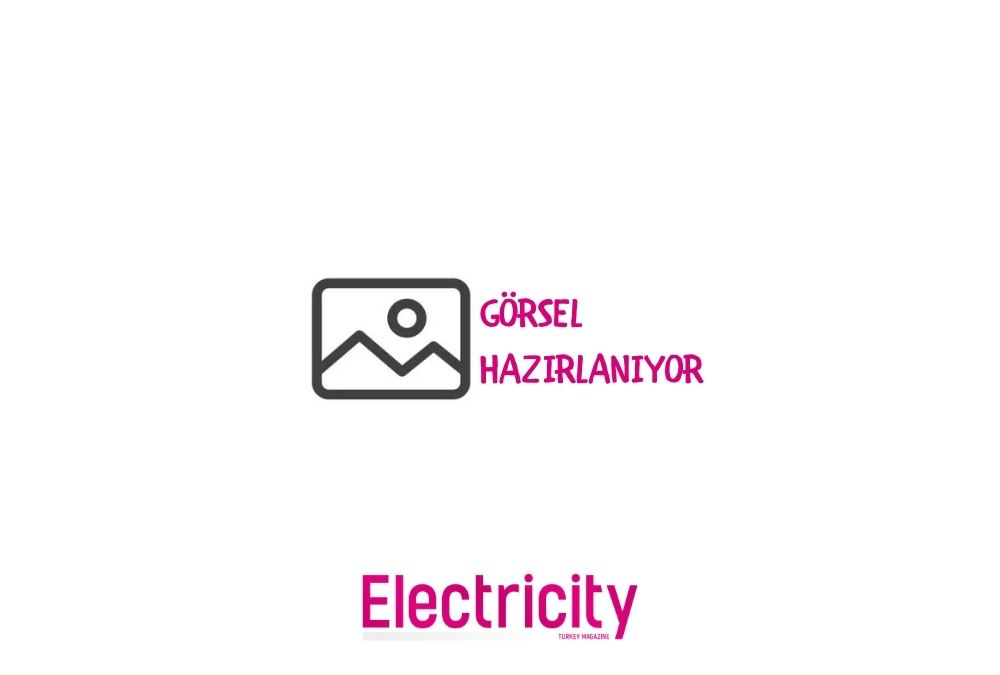
Sabancı University Istanbul Policy Center (IPC) hosted a conference titled "Social and Economic Benefits of Renewable Energy". At the conference, where the first results of the researches on the effects of renewable energy on employment, industrial development, air quality and energy supply security in Turkey were shared, it was stated that the Turkish solar energy sector is expected to provide industrial production of $ 1.36 billion until 2028 and the wind energy sector will provide industrial production worth $ 33.3 billion
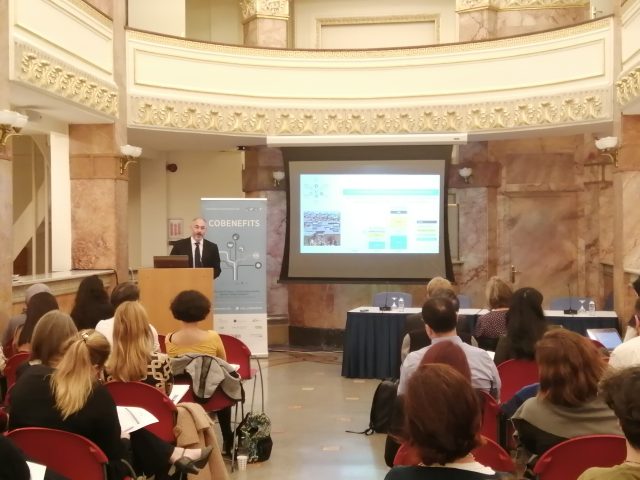
The conference titled "Social and Economic Benefits of Renewable Energy" was held in Minerva Han in cooperation with Sabancı University Istanbul Policy Center (IPC) and Potsdam Advanced Sustainability Studies Institute (IASS). Within the scope of the international project titled "COBENEFITS: Determination and Dissemination of the Social and Economic Benefits of Renewable Energy" carried out at IPC, in cooperation with IPC – IASS, in four priority areas specific to Turkey; The first results of the researches on the effects of renewable energy on employment, industrial development, air quality and energy supply security in Turkey were shared.
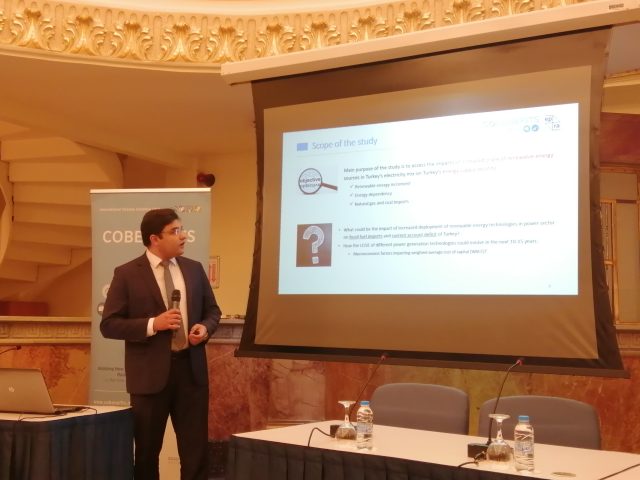
The conference, which started with the opening speeches of Ümit Şahin and Pınar Ertör Akyazı from IPC and Sebastian Helgenberger from IASS, included the following topics:
- The Turkish solar energy sector is projected to generate $1.36 billion by 2028, while the wind energy sector is projected to generate $33.3 billion worth of industrial production.
-According to the report prepared within the scope of the "Dissemination of Climate Change Mitigation Ancillary Benefits through Capacity Building in Public Institutions" (COBENEFITS) project, Turkey will be able to increase the value of industrial production by increasing the share of renewable resources in energy production.
In the solar energy sector, where the total production value in the value chain was calculated as $ 88 million in 2016, it is foreseen to provide industrial production worth $ 1.36 billion by 2028 if the current renewable energy policies are continued.
- The 15-25 gigawatt increase in installed power that can be made in the field of solar energy in the next 10 years is expected to increase production by 6.8-11.3 billion dollars.
- In the wind energy sector, where the total production value in the value chain was calculated as $ 25.3 billion in 2016, industrial production worth $ 33.3 billion is expected to be reached by 2028.
During the period in question, the expected value increase for an additional 13.3-23.3 gigawatts of installed power in wind energy is estimated to be $ 47.6-83.5 billion.
We are in the project simultaneously with South Africa, Mexico, Vietnam and India
COBENEFITS Turkey Project Coordinator Pınar Ertör Akyazı, "Project; It is being conducted in South Africa, Mexico, Vietnam and India. We have been conducting research studies on the social and economic benefits of renewable energy in Turkey for a year. We work in the areas of renewable energy impacts on industrial development and trade, air quality and health, employment and energy supply security. In our work on industrial development and employment, we set out the value chain of renewable energy and are based on four renewable energy scenarios with projections for 2028. The report we published today tries to provide concrete data on how industrial development will increase in line with these scenarios and what R&D, innovation and investments can be made to reduce the external energy deficit. In addition, until February 2020, three more reports will be shared in the areas of employment, air quality and health, energy supply security."
Energy transformation and planning should be done holistically
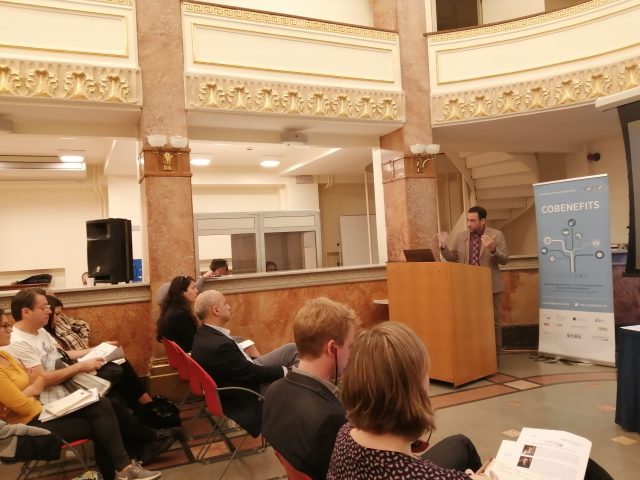
SHURA Energy Transformation Center Director Değer Saygın and Turkish Installation Engineers Association (TTMD) Chairman Kemal Gani Bayraktar spoke at the conference under the title of "Energy Transformation and Renewable Energy Sector in Turkey". Referring to the situation of the renewable energy sector intertwined with technology, Değer Saygın said, "We can no longer think of the sector independently of technology. 90% of new electricity investments come from solar and wind. It is also important to plan to mobilize the social and economic benefits of this." Kemal Gani Bayraktar, who stated that climate change contains opportunities as well as the threats it contains, said:
"Considering that the unemployment rate of the young population of the Turkish economy is very high, we need to produce more value-added materials and serve the world's decarbonization goal. Our cities need to be designed to make a 100% energy transition. It is important to commission new architectural and engineering understandings that also take into account buildings and to produce integrated structures that also take into account energy systems."
Study reveals the value chain of renewable energy
Bengisu Özenç from Bilkent University, who conducts research on industrial development and employment and draws attention to the fact that Turkey's dependence on foreign energy may increase, said the following in her speech:
"Turkey's economic fragility regarding imported energy sources is increasing day by day. According to the TurkStat report, Turkey has a 75.7% dependence on foreign countries in the energy sector in 2017. Determining the direct and indirect production value, foreign trade flows, R&D activities in Turkey and the position in the global value chain, creating the value chain of Input-Output relations using the Entrepreneurial Information System data set of the Ministry of Industry and determining the direct and indirect employment potential, professions and talents under different renewable energy scenarios form the basis of my work flow. We carried out a value chain mapping based on the data of the renewable energy producing companies registered within the scope of the project. The increase in renewable energy investments means an increase in employment. With the development of domestic production facilities, this effect is expected to increase even more. A large part of the employment created within the framework of the current industrial production structure and technology content occurs in professions requiring intermediate skills. Investment in the production of high-value-added components is expected to increase the demand for high-skill occupations."
Investing in renewable energy means saving money
Emphasizing Turkey's increasing fossil fuel imports and the effects of this situation on Turkey's current account deficit, Saeed Teimourzadeh from Engineering, Purchasing, Research and Analysis (EPRA) continued his words as follows:
"Turkey has the opportunity to increase energy supply security and energy independence by supporting renewable energy production. With renewable energy, Turkey can significantly reduce its demand for fossil fuels and therefore fossil fuel imports. By 2028, the share of fossil fuels can be reduced by 5% for 32 GW of renewable energy installed capacity, 8% for 40 GW and 15% for 60 GW. Under these renewable energy scenarios, Turkey could save $728 million, $1.1 billion and $2.1 billion, respectively."
The Silent Killer: Air Pollution
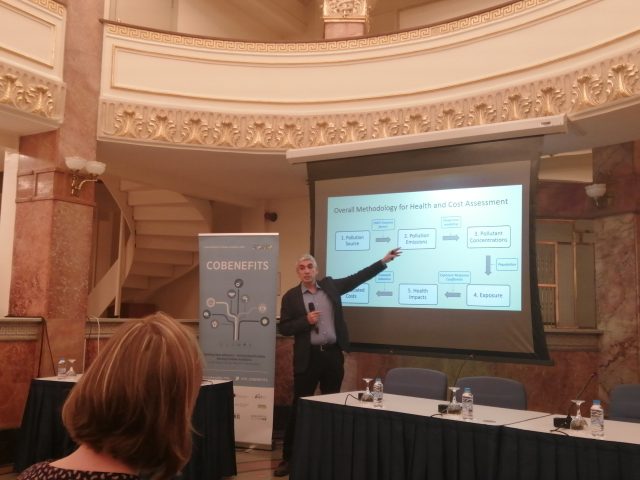
Describing the impact of increasing renewable energy on air quality and human health, Nadim Copty from Boğaziçi University said:
"This study aims to assess the potential benefits on air quality and human health of increasing the share of renewable energy in Turkey's electricity production. We estimate that air pollutant emissions from fossil-fuelled thermal power plants caused 2,103 deaths in 2017. When current policies are followed, this number will increase to 2,333 in 2028. If more ambitious renewable energy policies are pursued, annual deaths are expected to fall to 1,564 in 2028. In this way, it will be possible to save more than 700 million euros in health costs in 2028. It is very important for the Ministry of Health to work on mortality and disease rate statistics to support similar national modelling and decision-making processes."
It is stated that applications can be made at https://www.renac.de/projects/current-projects/cobenefits/online-trainings/ address for online renewable energy trainings given by RENAC (Renewable Energy Academy), which continue until January 2020.
The conference ended with a panel on "How to spread the social and economic benefits of renewable energy in Turkey" moderated by Ümit Şahin and attended by Bengisu Özenç, Nadim Copty, Saeed Teimourzadeh, Funda Gacal and Sebastian Helgenberger.
 SİZİN DÜŞÜNCELERİNİZ?
SİZİN DÜŞÜNCELERİNİZ?